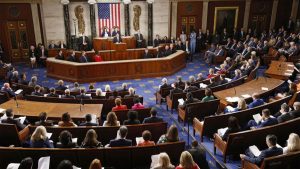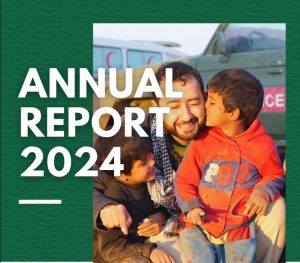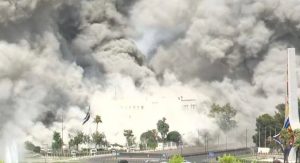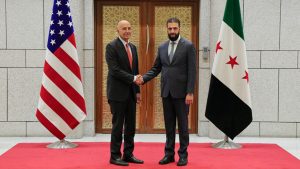FOR IMMEDIATE RELEASE
FEBRUARY 6, 2024
WASHINGTON, DC – On February 6th, 2023, a powerful 7.8-magnitude earthquake struck southeastern Türkiye, just miles from the city of Gaziantep, and northwest Syria. This seismic event was followed by a significant 7.5 aftershock later that day, along with hundreds of subsequent aftershocks. These earthquakes, among the largest ever recorded in the region, resulted in over 55,000 casualties in southeastern Tūrkiye and northern Syria. In view of the dire situation and the lack of aid, The Syrian Emergency Task Force (SETF) launched several initiatives in support of the earthquake survivors, some which continue to bring relief a year later.
The earthquake worsened the already dire conditions for civilians in northwest Syria, amid a long-standing war marked by violence and forced displacement at the hands of the Assad regime, Iran, and Russia. Unfortunately, access to immediate relief relied heavily on the Assad regime, delaying international aid, including search and rescue equipment, for at least eight days. Tragically, the absence of equipment led to further loss of life as civilians struggled to dig out survivors from collapsed structures.
Appalled by the lack of aid and attention directed towards this population in need of emergency assistance, SETF, a small non-profit organization, launched several initiatives delivering relief to earthquake survivors in northwest Syria. SETF fundraised over $100,000 from over 500 individual donors and launched several initiatives benefiting over 16,000 people including the following: (1) Providing cash assistance to displaced families in greatest-impacted areas including Adiyaman, Hatay, Osmaniye, Nurdagi, Gaziantep, and Antakya in Tūrkiye and Jindiris and Afrin in Syria. (2) Procuring and delivering over 1,000 food baskets. (3) Building a new tent camp in Afrin for 50 families, including heaters and water and sanitation systems. (4) Delivering physical aid to survivors including hygiene products, diapers, warm clothes, among others, and (5) two full trucks of humanitarian aid into northwest Syria. Moreover, SETF facilitated over 30 journalists’ entry to northwest Syria, enabling them to be the first to report on the disaster from the ground. Some of these articles were seen on the front pages of the New York Times, Al Jazeera, Washington Post, The Guardian, Times of London, and a CBS 60 Minutes segment.
Mouaz Moustafa, SETF’s Executive Director, said: “The earthquake was a reminder of the criminality of the Assad regime, that not only refused aid to the hardest-hit population centers, but also bombarded within hours the survivors of the earthquake.”
SETF continues to raise awareness by facilitating journalist visits to northwest Syria and to advocate for more humanitarian corridors to open to northwest Syria. SETF also sustains its humanitarian programs operating in the disaster-affected areas of Gaziantep, Idlib, and the Aleppo countryside, which act as assistance relief centers in their communities. A year after the earthquake, SETF remembers the over 55,000 lives lost and reaffirms its commitment to advocating for the vulnerable populations in northwest Syria and beyond, ensuring that they receive the assistance and attention they need to rebuild their lives and communities.
For press inquiries, please contact:
Maria Cure
[email protected]
www.setf.ngo









